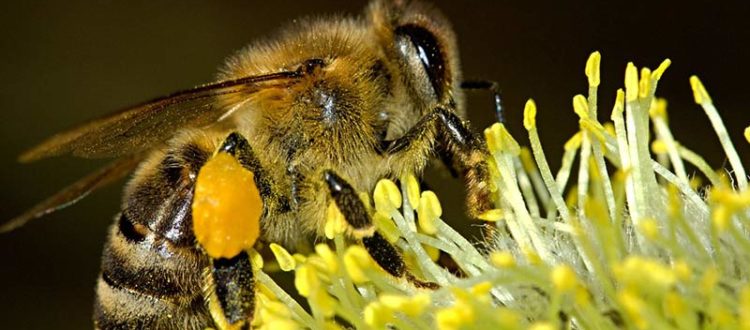Nasty night for bees, black year for honey !
Less than 10,000 tons of honey produced this year is unheard of… Sad record for the year 2016 which dethrone 2014, already considered the worst year of French beekeeping… Besides that since the 1990s, the Production of honey is in free fall. Are we headed for zero French honey ?… The beekeepers very worried about the future of their profession and the times are really hard for the bees who did not already have easy life… Main responsible pointed the finger for this year : the rotten weather.
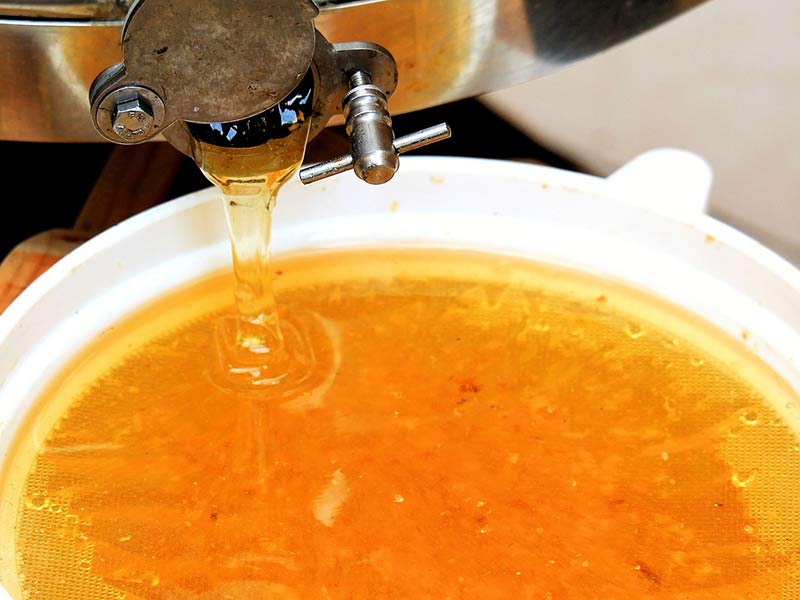
The long-lasting calamity has disoriented the bees
Each season, the weather has been capricious and it is this accumulation of “abnormal” episodes that explains that bees have produced so little honey this year.
A much too mild winter = bees on the balcony
Normally in winter, bees overwinter, which means they lead a “normal life”, but with reduced activity, inside the hive, and live honey reserves stored in the hive, unlike hibernating animals And sleep all winter.
Except that this year, the winter having taken spring airs, the queens continued to lay, the bees have left, have forested to the right the rare rare generous nectar flowers in this season.
Result the bees have weakened by tapping on their reserves…
If too mild winter has disoriented the bees, it has on the other hand favored the proliferation of parasites, like the varroa, which decimate the populations of bees every year…
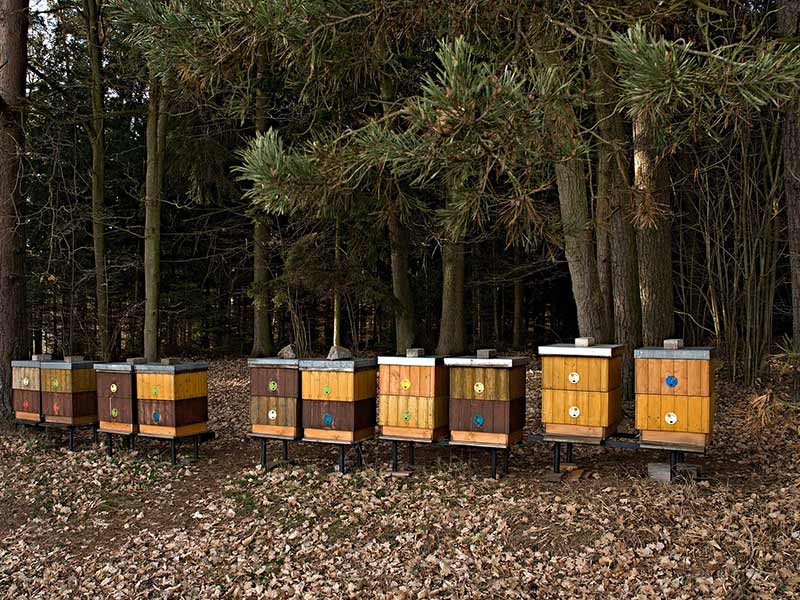
A cold and rainy spring = private bees of exit and nectar
In the spring, cold and heavy rains forced the bees to “stay warm” in their hives while normally this season they work “dare-dare”! This weather was not disastrous only for the small foragers : the flowers did not grow as it should. For example, the acacia flowers, which have only 10 days to hatch, were simply absent because of the incessant rains at this time, and left the bees on their hunger for nectar…
Result : not or very little acacia honey this year… And this is just one example among many others…
And again, the pig time of this spring 2016 allowed the appearance of the black disease that causes the paralysis of the bee in 2 to 5 days…
Besides, the continuous practice of intensive monoculture does not provide the bee with the diversity of honey plants – plants that secrete nectar or honeydew – that it needs to feed all year round and produce good honey…
In this context, the decline in rapeseed and sunflower crops, which account for nearly two-thirds of the annual French honey production, only aggravates the already unpopular situation of bees this year…
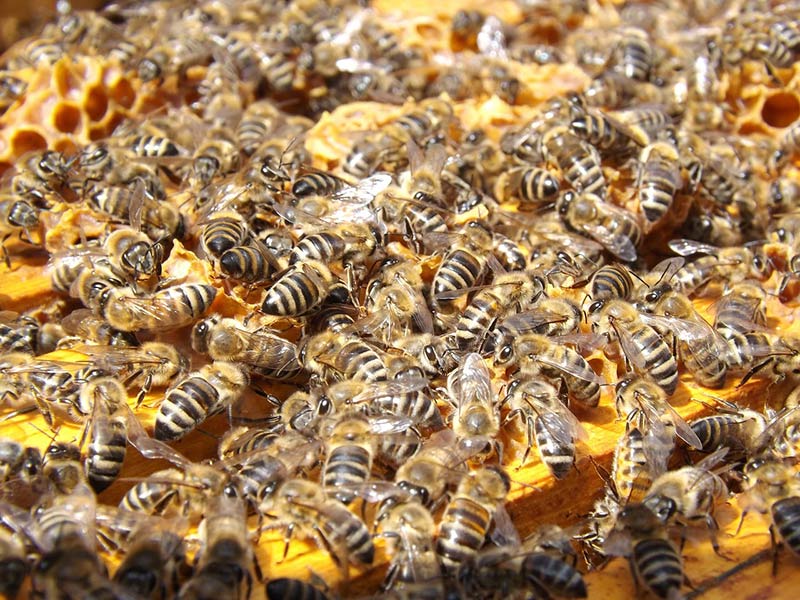
A hot summer and dry = less flowers, scarcity for bees
The records of heat and drought of this summer 2016 have “grilled” too quickly flowers, like those of lavender… leaving the bees very destitute…
But the strong summer heat also favored the development of the Asian hornet , sworn enemy of the bee, which has already invaded almost the entire hexagon…
Yes, really he has done a dirty time all year round for the bees… The honey crops are very lean and the beekeepers are in a critical situation. A second year like the year 2016 could well be the death knell for beekeepers, whose noble profession was already weakened…
And again, it is not to mention pesticides killers of bees, such as neonicotinoids , which were banned, but Which, in fact, will still be used… You are left to imagine the ravages they can cause on the colonies of bees…
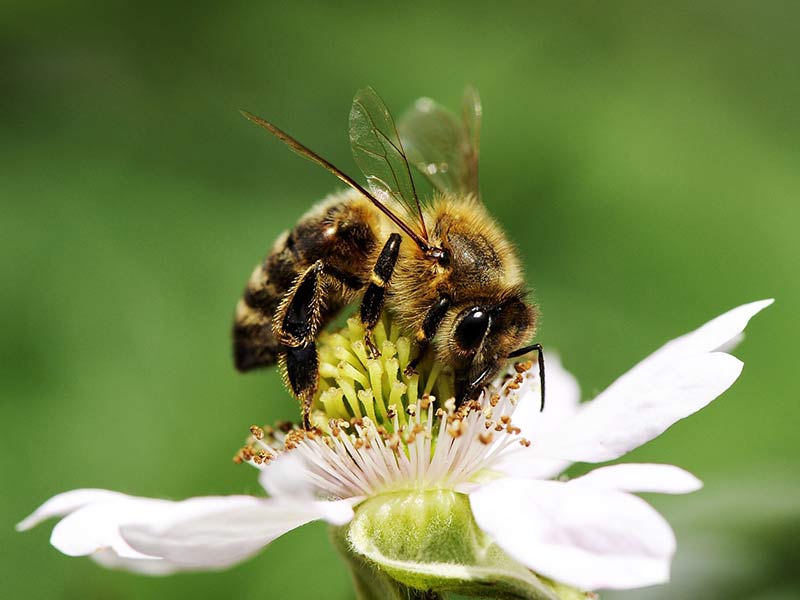
Tomorrow, what would a world without bees look like ?
Imagine a breakfast without coffee or tea ? Tasting breaks without chocolate squares, without apples ? Meals without vegetables or spices ? Summers without strawberries or raspberries, without peaches or nectarines ? Sports snacks without nuts or almonds ?
And yet, that’s what would happen if the bees disappeared… What sadness on our plates !…
Bees are associated with honey but we are not always aware of the immense services that bees give us.
- They pollinate more than 80% of flowering plants
- They allow, for their “painstaking work”, the production 3/4 of world cultures: fruits, vegetables, nuts, spices, coffee …
- They provide 35% of the World food production
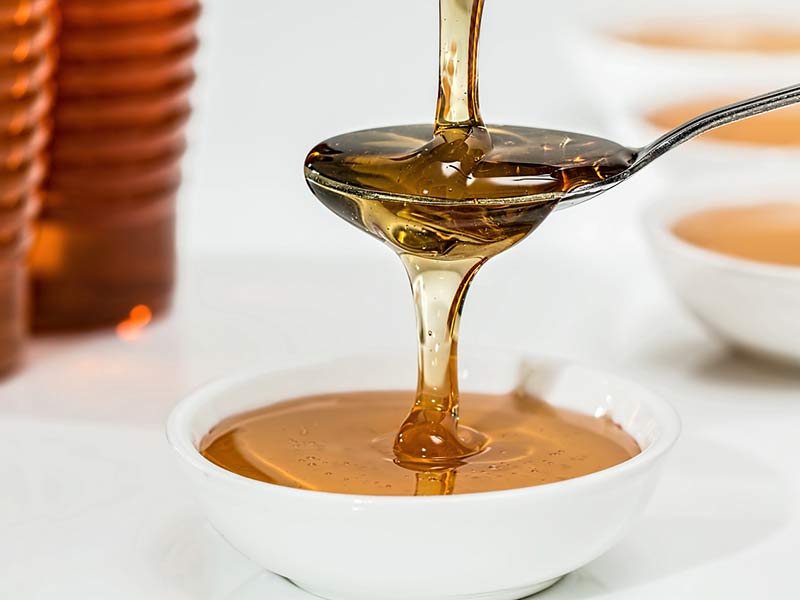
The amount of services that bees give us was estimated in 2005 at about 153 billion euros… What a loss for the economy if tomorrow we no longer had bees !…
If the decline of the bees continues at this unbridled pace, the consequences would not be dramatic only beekeepers… In fact, it is the humanity as a whole that depends on the survival of small foragers. The protection of bees concerns us all and everyone can act on their scale to improve their living conditions :
- planting melliferous flowers
- supporting beekeepers in their fight against pesticides
- not using pesticides in the garden…
And what would you be willing to do for the bees ?



